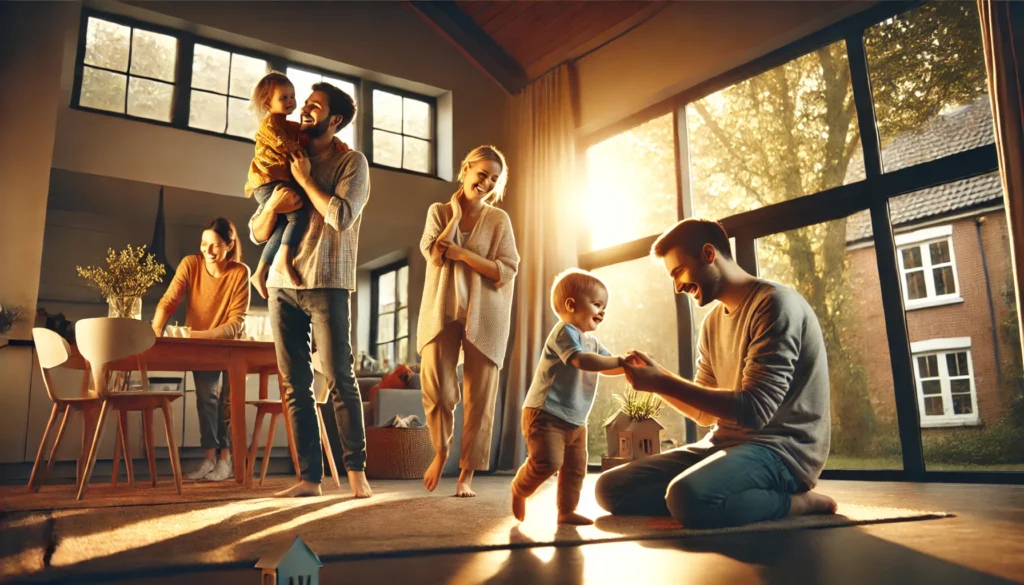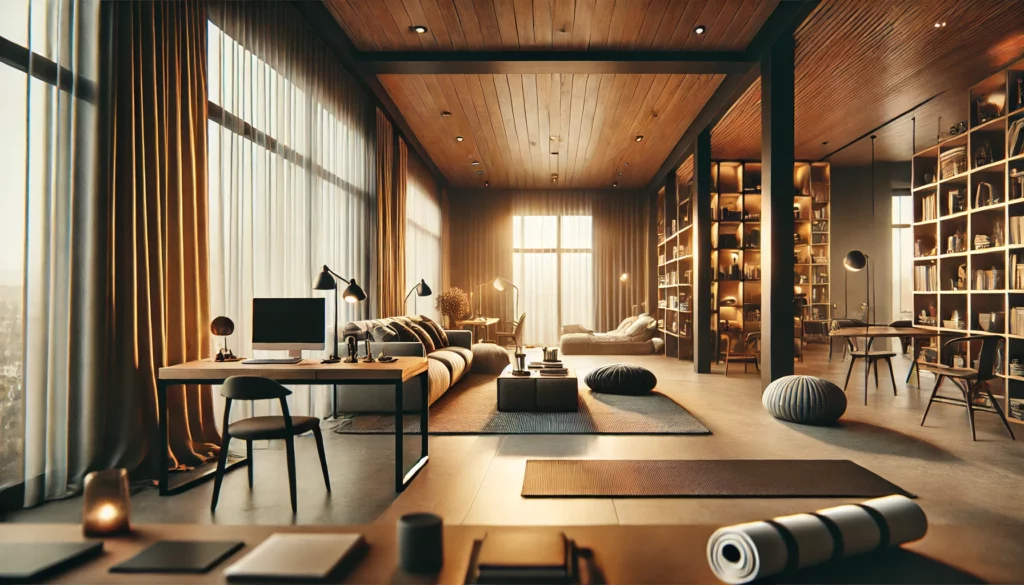Key Takeaways
- Remote work has reshaped home-buying priorities, with a focus on lifestyle, space, and flexibility.
- Homebuyers are increasingly drawn to smaller towns and suburban areas that offer better quality of life.
- Multi-functional spaces, home offices, and outdoor areas are now essential features for modern homebuyers.

New Home-Buying Mindset: Freedom, Lifestyle, and Space
Remote work has reshaped the way people live and choose homes.
As more companies embrace flexible work-from-home policies, individuals have gained the freedom to rethink their living situations.
The need to live near an office has diminished, giving rise to new priorities in home buying. People now focus more on lifestyle, comfort, and space when choosing a home.
This shift has sparked significant changes in the real estate market, influencing where and how people decide to buy homes.
The impact of remote work on these decisions reveals itself in every aspect of modern home buying.

Prioritizing Location Based on Lifestyle
Remote work has altered homebuyers’ decisions, leading to changing priorities in home location where lifestyle now takes precedence over proximity to work.
Before remote work became the norm, people often bought homes based on their commute times.
Living close to work made sense when daily travel to the office was necessary. However, the rise of remote work has changed this mindset.
Now, homebuyers seek locations that align with their personal values, hobbies, and desired lifestyles. Coastal towns, scenic mountain retreats, and quiet rural areas have grown in popularity.
People value the peace and tranquility these locations offer, and remote work has made it possible to live in such areas without compromising career opportunities.

Space and Comfort Become Top Priorities
With remote work becoming a long-term reality for many, the need for space has surged.
Homebuyers now prioritize properties with more square footage and extra rooms. These rooms can serve multiple purposes, from home offices to guest rooms or hobby spaces.
The demand for larger homes reflects a broader trend: people want their homes to support both their personal and professional lives. The desire for space also extends to outdoor areas. Gardens, patios, and large yards have become highly desirable features.
Remote workers often seek these outdoor spaces to relax and unwind after work hours.

Flexibility in Choosing Locations
The flexibility remote work offers has opened up new possibilities for homebuyers. They no longer feel tied to a specific city or region. Instead, they can choose a home in a location that best suits their needs and preferences.
This newfound freedom has led many to explore areas they might not have considered before. Smaller towns and suburbs, once overlooked due to their distance from major cities, now attract interest.
These areas offer more space and a better quality of life at a lower cost. As a result, homebuyers find themselves drawn to places where they can enjoy both work and leisure without the pressure of daily commutes.

Multi-Functional Spaces Gain Popularity
As remote work continues to blur the lines between work and home life, the need for multi-functional spaces has grown.
Homebuyers now seek properties that offer flexibility in how spaces can be used. A room that serves as a home office during the day might transform into a guest room or a playroom in the evening.
RELATED CONTENT
This adaptability appeals to those who value efficiency and versatility in their living spaces. The trend reflects a broader shift toward making homes more responsive to the varied demands of modern life.
People want their homes to meet all their needs without requiring constant reconfiguration.

Creating Functional Home Offices
The rise of remote work has increased the demand for homes with an additional room that can be turned into a functional workspace. Buyers actively search for properties that have at least one spare room, eager to turn it into a home office.
A well-designed home can help with maintaining productivity and achieving a healthy work-life balance. Homebuyers recognize the importance of having a space specifically designed for work.
Turning a spare room into a home office creates an environment that supports their professional needs while blending seamlessly with their personal lives.

Emphasizing Community and Lifestyle
With the freedom to work from anywhere, many homebuyers now prioritize community and lifestyle factors. They look for neighborhoods that offer a strong sense of belonging, good schools, and access to outdoor activities.
The ability to choose a home based on lifestyle preferences rather than work proximity has shifted the focus to areas that promote well-being and social connections. This trend highlights the growing importance of finding a place that feels like home in every sense of the word.
People want to live in communities that align with their values and provide opportunities for a balanced life.

Importance of Technology in Home Selection
Remote work has also placed a spotlight on the role of technology in home-buying decisions. High-speed internet, reliable cellular service, and smart home features have become essential considerations for many buyers.
A home without strong connectivity can hinder productivity and limit the effectiveness of remote work. As a result, people now prioritize homes equipped with the latest technology to support their remote work needs.
This emphasis on technology reflects a broader trend toward creating homes that are not only comfortable but also highly functional in a digital age.

Appeal of Outdoor Spaces
Outdoor spaces have become increasingly important for remote workers who spend most of their time at home.
Homebuyers now actively seek properties with gardens, patios, and balconies. These spaces offer a retreat from the home office and a place to relax, exercise, or entertain.
The ability to step outside and enjoy fresh air without leaving home has become a significant draw. As people spend more time working from home, the appeal of outdoor spaces has only grown.
Homebuyers want to ensure that their living environment supports both their work and leisure activities.
Long-Term Effects on the Housing Market
The impact of remote work on home-buying decisions will likely have long-term effects on the housing market.
As more people continue to work remotely, the demand for homes that support this lifestyle will grow.
Real estate agents and developers must adapt to these changing needs, offering properties that cater to the desires of remote workers. This shift represents a significant change in how homes are marketed and sold.
The traditional focus on location near employment centers is giving way to a broader emphasis on lifestyle and functionality.
As the real estate market continues to evolve in response to remote work, staying informed is key.

Lasting Impact of Remote Work on Home Buying
The impact of remote work on home buying is reshaping the real estate market.
As remote work becomes a permanent norm, people will continue to prioritize space, lifestyle, and technology when selecting a home.
The freedom to work from anywhere allows buyers to choose locations that fit their personal preferences.
The future of home buying is here, driven by the impact of remote work.
No related posts.





















